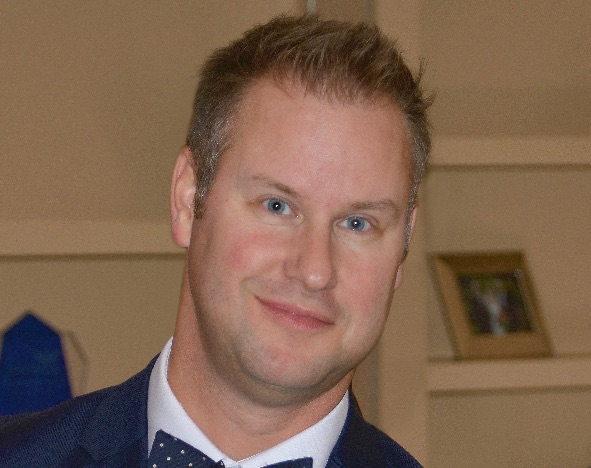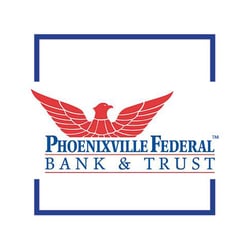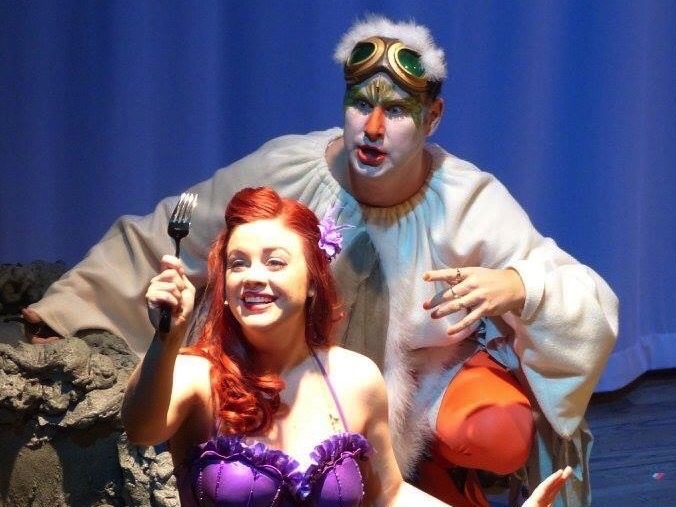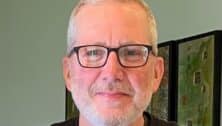Chester County Leadership: Kurt Kunsch of Phoenixville Federal Bank & Trust

 Kurt Kunsch, Senior Vice President and the Trust Managing Director at Phoenixville Federal Bank & Trust, spoke with VISTA Today about growing up in Phoenixville, excelling in football and track and field in both high school and college, and bearing witness to the borough’s renaissance, which, he believes, was sparked by the saving of the Colonial Theatre.
Kurt Kunsch, Senior Vice President and the Trust Managing Director at Phoenixville Federal Bank & Trust, spoke with VISTA Today about growing up in Phoenixville, excelling in football and track and field in both high school and college, and bearing witness to the borough’s renaissance, which, he believes, was sparked by the saving of the Colonial Theatre.
Kunsch also discussed being bit by the “theatre bug,” the lessons he learned from his first job, his choice to attend Muhlenberg College, what differentiates his bank from other community banks in Chester County, and what challenges and opportunities lie ahead in the New Year.
Where were you born, and where did you grow up?
I was born the oldest of two children in 1977 and raised in Phoenixville.
What did your parents do?
My dad was a banker. My mom stayed at home with my younger sister and me. She helped out at our elementary school as an aide as well. She had Crohn’s Disease, which eventually turned into Colon Cancer, and took her life at fifty-two.
She was a trooper through-and-through, always there for my father and us kids.
Were they both from Phoenixville?
My mom was from Pottstown, but my dad grew up in Phoenixville.
What memories do you have of growing up in Phoenixville?
Growing up in town was definitely a great experience. I knew the history of the town from talking with my dad and my grandparents. The ’80s were tough because the steel industry had shut down. I knew not to go into town unless I was looking for trouble. My parents and our bank were well known in town, so there were always familiar faces to see.
Having come full circle, and still being involved in the town, it’s an incredible turn-around. When I graduated from Phoenixville High School, most of my classmates wanted to get out of town as quickly as possible. Now, as one of the people in charge of my high school reunion, I’m seeing a lot of those people coming back to raise their families!
When, in your mind, was the turning point for Phoenixville?
My dad and I talk about this often. The most important thing that Phoenixville did was to save the Colonial Theatre. The Theatre created an anchor for the town and brought people in. It was a conduit for people to come to see a show, grab a coffee, get something to eat or just window shop. Everything was built from there.
There are so many great people in town who put a lot of time and effort into building Phoenixville up to what it is. Those people kept fighting the good fight saying, “Phoenixville will turn around, just wait!” They were adamant that one day Phoenixville would rise again.
 Did you play any sports growing up?
Did you play any sports growing up?
I played most of the sports but eventually settled on track and football. My dad was a PIAA high school football official, so I always went to the games with him growing up. Every year, my mom and I would sit in the stands, freezing our butts off during the Thanksgiving Day football game. When I finally got to play in the game myself, it was a wonderful experience, having watched it my whole life.
I went on to play football and run track in college as well.
What positions did you play on your football team?
I was a wide receiver, defensive back, and also the punter in high school and college. In track and field, I was a hurdler, high-jumper, and pole-vaulter.
I held the high school record for a long time, and still hold my outdoor college pole-vaulting record at fourteen feet, seven inches. I only did high jumping until junior year of high school, when the coach asked if I wanted to jump higher and pointed me to the pole-vault.
What kind of music were you listening to back then?
I sang professionally in the Valley Forge Memorial Chapel Boys Choir under the direction of Peter Conte, who is now the head organist for the Wannamaker Organ. I was very fortunate to have great music teachers in elementary school, who encouraged me to audition for the Choir in fifth grade. I was able to travel to England and tour up and down the east coast with that group.
I listen to everything today – Rock-and-Roll, Rap, and even Broadway. I was a theatre major at Muhlenberg College, so I’ll always have a love for that type of music. I knew I wasn’t going to make it in LA or New York, but I still act locally at SALT Performing Arts of Chester Springs. The Theatre started a pre-school alternative in West Chester, where my wife is the Director, and my kids often act on stage there.
When did the theatre bug bite you? When did you recognize you had a thing for being onstage?
I loved to perform from the time I was in 7th grade and able to audition for the Spring Show. I always liked to perform – singing or magic – for family and friends.
In my junior year of high school, I auditioned for South Pacific, senior year, I landed the part of Tony in West Side Story, and I just loved being a part of the theatre life. Because I was an athlete in college, I wasn’t able to participate in as many productions as I’d like.
When I got out of college, I auditioned for some shows at Forge Theatre in Phoenixville, and then took a fourteen-year hiatus before returning to stage for “The Little Mermaid.”
What do you get out of being on stage?
I love to make people laugh, cry, and feel emotions. It’s an outlet for me, as well. As a banker, I work with people and their money, but also death and dying as we settle many folk’s estates. I greatly value the impact the arts have on society. There’s something for everybody.
My wife and I want our kids to be confident people, so we’ve created a mission at the pre-school and at SALT to develop confident children from a young age who are less likely to be bullied or bully others later in life. We know that not everyone will be a star performer, but helping with public speaking and other aspects of leadership from a young age is important to us.
What was your first job?
I started in junior high as the trash boy at Gateway Pharmacy in Phoenixville. In high school, I mowed lawns and worked at Water World as a lifeguard for several years.
During breaks in college, I worked on the teller line at the bank, as well as other various jobs at the bank that needed to be done.
What lessons did you take away from those first jobs that you still use today?
I think, as a lifeguard, the level of responsibility I had was very impactful on me. I took the job and training very seriously while some others may have just thought of it as a glamorous, fun job. The two times I actually had to go in and save people, looking back now as a parent, I’m so glad I did take it as seriously as I did at such a young age. People’s lives were in my hands.
Where does that the serious side of you comes from?
Growing up, I was a very happy person, without a care in the world. I like to make people laugh, but I also appreciate people seeing my serious side. It’s a yin and a yang balance. My kids and my wife keep me grounded and inspire me every day.
Why Muhlenberg?
I was recruited for football by LSU and Kent State, but I knew if I went there, I would not be able to be a two-sport athlete. I was all-set to go to Moravian College, had a visit there, and met with the coaches and players for both track and football.
As we were driving back, my dad suggested stopping at Muhlenberg because he had gone there for a while, and we decided to stop and see it. I fell in love with the school, and the football coach Greg Olejack was a master salesman. Muhlenberg was close to home, which I appreciated because I never wanted to be too far from Phoenixville. My sister eventually transferred to Muhlenberg as well.
Looking back over the last twenty-five years of your career, who were the people who helped you get to where you are today?
I had a great role model in my dad. He was a great father, husband, and community leader.
There are so many people in town that directly or indirectly impacted the way I want to be. There are so many nonprofits and community leaders in town. Some notables include Don Coppedge, Dave Frees and his family, Jim Deoria, Lou Beccaria at the Community Health Foundation.
The Board at the Bank has always supported me. It’s a double edge sword working at the institution that your father has been at for sixty-two years. Some of the people I work with here at the bank held me when I was a baby.
Looking ahead, what are the challenges and opportunities ahead of you as we head into 2020?
Within the financial services industry today, there is so much information and options available for people online. The challenges are to embrace technology and continue to stay relevant.
We were the second community bank in the country to offer a robo-advisory service. Last year, I was interviewed by American Banker Magazine to discuss embracing technology and continuing to provide a personal connection. At the end of the day, when people have concerns, they want to talk to someone face-to-face. We’ve been successful on the trust and wealth side this way, and it’s allowed us to stand out.
There are so many new people coming into Phoenixville who don’t know the genesis of the town. We are very involved in giving back to the community, and that’s one of the reasons why we’ve been able to stay relevant in the banking space in Phoenixville. Many members of our senior leadership are involved in nonprofits in town, and our employees are really rolling up their sleeves to get involved in the rebirth and success of Phoenixville.
How do you, as a community bank, differentiate your practice from other wealth management professionals in Chester County?
When I took over the department in 2008, I knew there was a need for a more holistic approach to wealth management. Questions like: how well do you know the family, how well are you connecting to the next generation, how often do you coordinate with other professional advisors that your clients have in their life?
Our practice not only looks at the client but also their children and their grandchildren. The mission is to provide extremely personalized solutions to each and every one of them.
We benchmark ourselves against other similar trust departments with banks of size and stature across the United States every year, which is difficult because only four percent of thrifts have Trust Powers. The comparison is small and continues to get smaller as consolidation occurs, which forces us to continually evolve and look to others to see best practices and Achilles heels. I travel to different conferences to speak with others who are in similar positions and influence change.
 How have the priorities of investors changed over the last decade since you’ve been running Phoenixville Federal’s wealth management practice?
How have the priorities of investors changed over the last decade since you’ve been running Phoenixville Federal’s wealth management practice?
We don’t lose clients often unless they pass away. The communication we have with our clients is constant, where they’re receiving a touchpoint almost monthly.
Investor sentiment has shifted dramatically, especially now with all-time highs in the market, and every news outlet giving “end of the world” predictions. We work with our clients to take a step-back, delve into the information, and talk about things that are really affecting them and their future.
We have all types of clients – high net-worth, blue-collar, and those struggling to pay their bills. Our clients want to know we have their best interests in mind and for us to give them peace of mind.
Even throughout the financial crisis in 2008, we did not lose a single client. We hand-held every client right through it. We work with a select group of clients, which helps make management much easier than a more extensive operation.
What do you do with your free time, Kurt?
 I have three kids – 11, 9, and 7, so I don’t have much free time! They are all involved in Theatre, sing, and play musical instruments. I love being on stage with them, as well. When I’m not running my kids around, I’m practicing and performing magic, which is one of my greatest passions.
I have three kids – 11, 9, and 7, so I don’t have much free time! They are all involved in Theatre, sing, and play musical instruments. I love being on stage with them, as well. When I’m not running my kids around, I’m practicing and performing magic, which is one of my greatest passions.
My grandparents owned a tailor shop on Gay Street in Phoenixville, and my mom taught me to sew. I still use her sewing machine.
I love to fly fish and tie my own flies. Locally, I go to French Creek. My dad and I are members of a hunting and fishing club in Pike County, Mink Pond, which is 2,600 private acres. We take friends, family, and clients there. My seven-year-old son has just picked up fly fishing and loves it. I’m amazed by his patience at such a young age.
Finally, Kurt, what is the best piece of advice you’ve ever received?
I can’t point to one thing, but as a general rule of thumb, I try to be true to myself and be a good person to others. It’s important to give back as much as you can, whether it’s time, talent, or treasure. My parents lived their life that way, and I try to inspire my children to live their lives that way.
There’s a Dr. Seuss quote that sticks with me, “Be who you are and say what you feel because those who mind don’t matter and those who matter don’t mind.”
I love the seriousness of what I do for my clients during the day, and I also love that I can dress up in orange tights and be tap dancing on stage at the same time.
___________
Publisher’s note: Laura Wagoner contributed to this profile
Connect With Your Community
Subscribe to stay informed!
"*" indicates required fields










































![95000-1023_ACJ_BannerAd[1]](https://vista.today/wp-content/uploads/2023/03/95000-1023_ACJ_BannerAd1.jpg)





